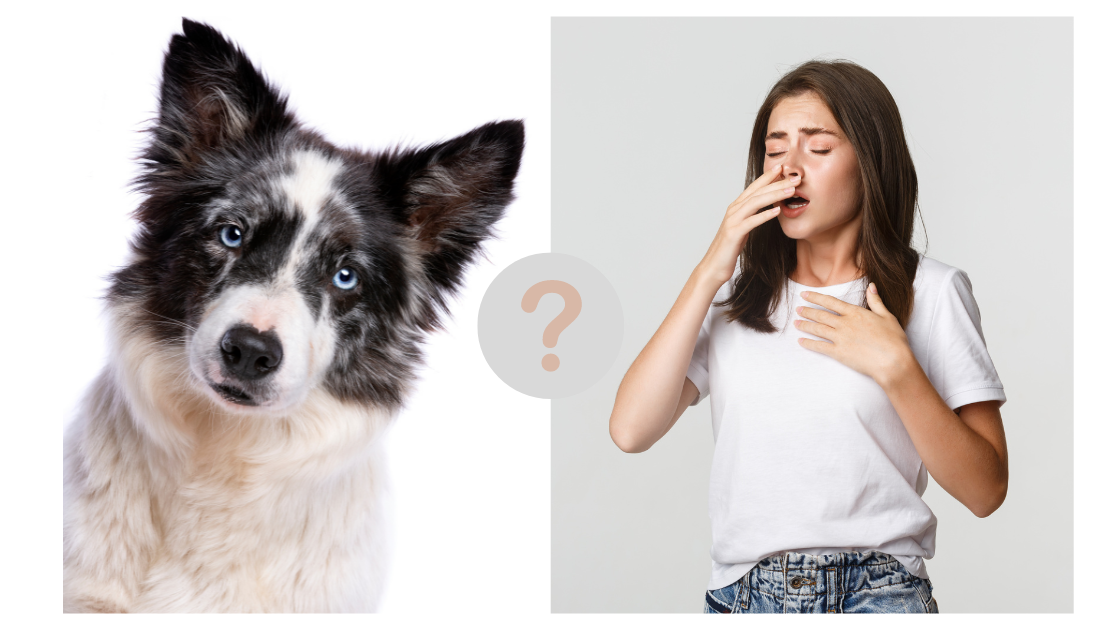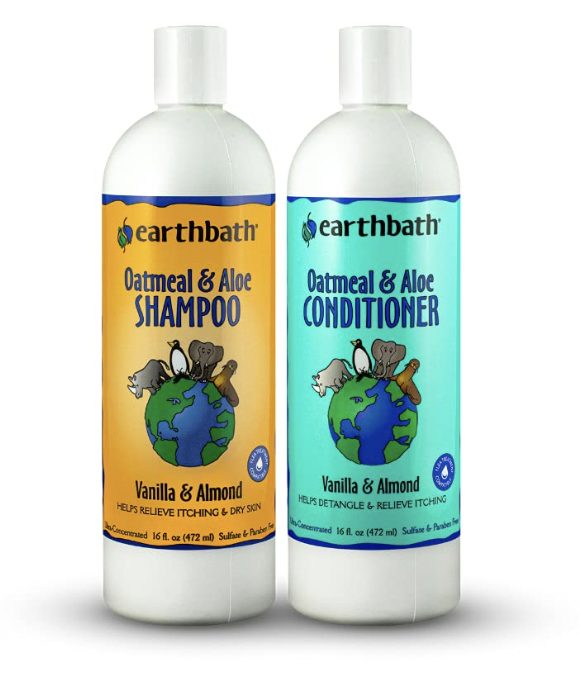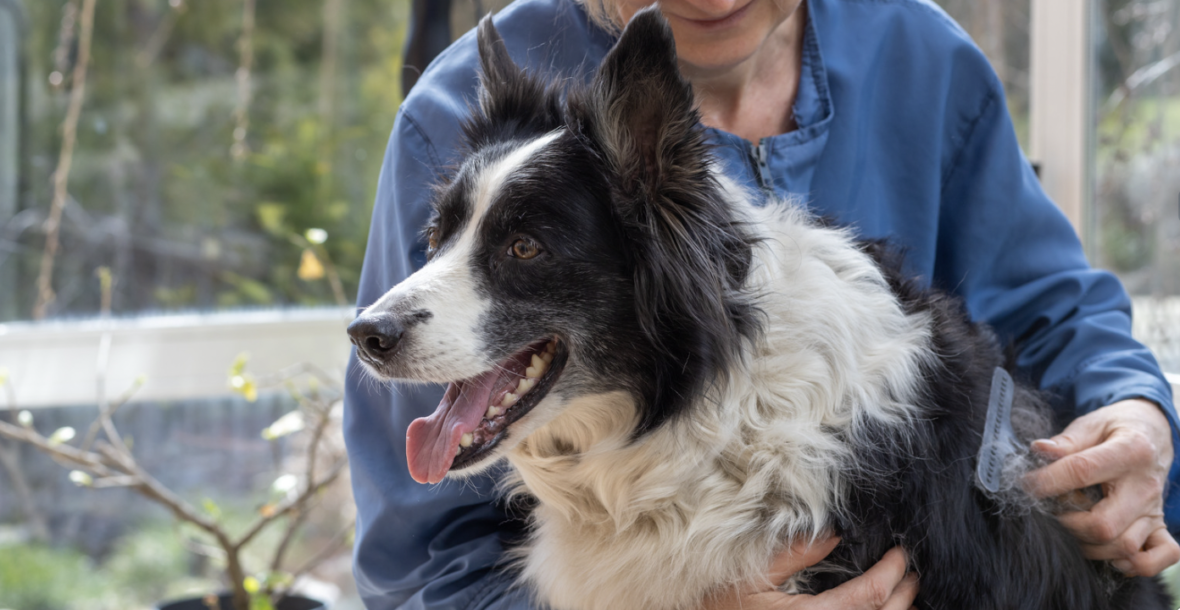Border Collie Health & Wellness
Are Border Collies Hypoallergenic: Understanding Shedding, Dander, and Allergy Management

Border Collies are beloved for their intelligence, agility, and unwavering loyalty. As one of the most popular dog breeds globally, they have become a popular choice for families and individuals alike. However, for those with allergies, owning a dog can present a challenge. The notion of hypoallergenic dog breeds has gained traction in recent years, leading many to wonder: Are Border Collies hypoallergenic? In this article, we will delve into the topic, exploring the characteristics of Border Collies and their potential impact on allergy sufferers.
Get To Know the Border Collie

Border Collies are renowned for their striking appearance and remarkable intelligence. Originating from the border region between England and Scotland, these herding dogs were bred for their exceptional work ethic and herding instincts. They typically have a medium-sized body, a dense double coat, and expressive eyes that captivate many dog enthusiasts.
What Triggers Dog Allergies?

Contrary to popular belief, no dog is 100% hypoallergenic. No, not even Poodles.
The idea of a completely hypoallergenic breed was created mostly as a marketing tactic, mostly fueled by the myth that a low-shedding dog also produces less allergen. This is untrue. So-called hypoallergenic dogs have been shown to carry more Can f 1—one of the proteins that cause allergic reactions in people—than non-hypoallergenic breeds. Despite this, homes with “hypoallergenic” and non-hypoallergenic dogs test approximately the same for accumulated canine allergens.


Humans can be allergic to proteins found in dog dander (aka dead skin), saliva, and urine. Every breed of dog produces approximately the same amount of these allergens, although there are some differences between individuals. You can be allergic to some, or all of these proteins, and your dog allergies can change over time.
“There is no guarantee that, over time, you won’t develop an allergy to one of the other dog allergens,” says the American College of Allergy, Asthma & Immunology in their quick guide to hypoallergenic dogs. The ACAAI goes on to note that, even if you find a dog that doesn’t immediately trigger an allergic reaction, “[that] dog [could] produce higher levels of those allergens later in its life.”
So, what should you do if you’re a dog lover with dog allergies? Are you doomed to never own a dog?
In just a moment, we’ll share a few tips for managing allergies if you’ve already got a Border Collie, or are getting a dog soon. If you have the time to prepare or are ready to start treating your pet allergies long-term, there are allergen immunotherapies available that can help to reduce your sensitivity to canine allergens.
How To Care For Your Border Collie’s Coat To Manage Allergies
1. Give Your Border Collie Regular Baths
There are two key reasons to bathe your Border Collie if you have dog allergies.
First, a good bath now and then will help to wash out stuck fur and dander, which would otherwise be dropped around your home.


Second, bathing your Border Collie with a good quality dog shampoo and conditioner can help to nourish their skin, reduce dryness, and reduce some dander production.
2. Brush Your Border Collie Outside

Because Border Colliels have that gorgeous, long, flowing fur, they need regular brushing to keep them detangled and to remove debris. Every time you brush your dog, they will drop loose fur and dander. To reduce the amount of dander they drop in your home, try doing their regular brushing outside!
3. Schedule Regular Appointments with a Dog Groomer
Giving your dog a bath at home is important, especially for breeds like the Border Collie. That said, taking them to the groomer is just as important, since a professional can do a more thorough job, and can get more stuck fur and dander out than you can at home.

Every 6–10 weeks is the right grooming schedule for a Border Collie, but this will also depend on how often your dog plays outside, how well you brush/wash them between professional grooms, their diet, etc.
4. Eliminate Soft Surfaces From Your Home
Soft surfaces like rugs, carpets, and fabric furniture collect dust and dander no matter how often you clean them. These items often have the highest allergen concentration in the home. By eliminating as many soft surfaces from your home as possible, you can significantly reduce the amount of dander that builds up.
5. Filter Your Air


It’s impossible to stop your furry friend from shedding dander since even low-shedding dogs still have skin cells that can trigger allergies. However, investing in a top-notch air filter or purifier for your living space can help eliminate tiny particles of dander and allergen from the air. This can significantly improve the quality of the air you breathe and reduce allergic reactions caused by your Border Collie.
If you’re trying to avoid cold or flu season, having an air purifier in the home can also protect your immune system from disease.
Popular Low-Shedding Dog Breeds
Although low-shedding dog breeds aren’t necessarily less likely to trigger your allergies, there are other reasons to choose one over a moderate or heavy-shedding breed. For example, you might not want to manage loose fur stuck to all of your clothing or furniture—for some people that’s not a problem, for others, it can be a real nuisance. Of course, it’s important to keep in mind that low-shedding dogs shed, just not very much!
Here are thirteen popular (and unique) low-shedding dog breeds.
- Afghan Hound
- American Hairless Terrier
- Basenji
- Bedlington Terrier
- Bichon Frise
- Chinese Crested Dog
- Irish Water Spaniel
- Maltese
- Poodle (Toy, Miniature, and Standard)
- Portuguese Water Dog
- Schnauzer (Miniature, Standard, and Giant)
- Soft-Coated Wheaten Terrier
- Xoloitzcuintli (Mexican Hairless)
Are Border Collies Hypoallergenic? The FAQ
If you scrolled down to this section to get a quick answer to the question: are Border Collies hypoallergenic dogs? The answer is: No.
If you’re looking for an answer to another question about the Border Collie, keep on reading!
Do Border Collies shed a lot?
Border Collies shed a light to moderate amount, depending on factors like health, nutrition, and stress levels.
Border Collies have a single coat and do not blow their coats or experience true “shedding seasons” like double-coated breeds. Instead, Border Collies will shed approximately the same amount year-round, though slightly more in spring and fall.
Are Border Collies good for people with pet allergies?
If you have a severe dog or pet allergy, a Border Collie may not be the right pet for you. Consult with an allergist or your doctor to see what they think would be the best option for your circumstances.
Can regular grooming reduce the allergy potential of a Border Collie?
Sort of. Regular grooming can help eliminate some of the dander your dog would otherwise drop in your home, but it can’t reduce how much allergen your dog produces, or impact the allergens in their saliva and urine.
Are there any hypoallergenic Spaniels?
The Irish Water Spaniel is the only Spaniel sometimes referred to as “hypoallergenic” thanks to its low shedding coat.
Is the Cockapoo hypoallergenic?
No. There is no such thing as a 100% hypoallergenic dog, even though many Doodles (Poodle mixes) are advertised as being suitable for people with allergies. Cockapoos (a mix of Poodle and Border Collie) are sometimes low-shedding, but as we already know, that doesn’t mean that they’re hypoallergenic!
What does it mean when a dog is hypoallergenic?
A hypoallergenic dog breed is one that is less likely to cause an allergic reaction in humans with dog allergies.
What causes allergies in dogs?
Allergies in dogs are caused by a reaction to certain proteins found in the dog’s saliva, skin cells, and urine.
Are there any dog breeds that are completely hypoallergenic?
No dog breed is completely hypoallergenic, but there are some breeds that are less likely to cause an allergic reaction in people with allergies.
What are some hypoallergenic dog breeds?
Some hypoallergenic dog breeds include Maltese, Poodles, Bichon Frises, and Portuguese Water Dogs.
Can allergies to dogs be treated?
Allergies to dogs can be managed with antihistamines, nasal sprays, and allergy shots, but there is no cure for dog allergies.
Can someone with dog allergies ever own a dog?
It is possible for someone with dog allergies to own a dog, but they may need to choose a breed that is less likely to trigger their allergies or take steps to manage their allergies.
Are there any health issues associated with Border Collies?
Border Collies are prone to a number of health issues, including ear infections, hip dysplasia, and allergies.
Do Border Collie make good family pets?
Yes, Border Collies are known for their friendly and affectionate nature and can make excellent family pets.
Are Border Collies good with children?
Yes, Border Collies are generally good with children and enjoy playing and interacting with them.
Are Border Collies easy to train?
Border Collies are generally intelligent and eager to please, but they can be stubborn at times and may require consistent and patient training.
Are Border Collies considered hypoallergenic due to their hair and dander?
While Border Collies are not typically classified as hypoallergenic, their low-shedding coats may produce fewer allergens compared to other breeds. However, it’s important to note that individual sensitivities to hair and dander can vary.
Can fatty acids in a Border Collie’s diet help reduce allergic reactions?
Including fatty acids, such as omega-3 and omega-6, in a Border Collie’s diet may promote healthier skin and coat, potentially minimizing the severity of allergic reactions in some individuals.
Can someone allergic to dogs still be allergic to Border Collies?
Yes, it is possible for individuals allergic to dogs to also experience allergic reactions to Border Collies. While they may shed less, Border Collies still produce dander and allergenic proteins that can trigger allergies in susceptible individuals.
Do Border Collies have a shedding season?
Yes, Border Collies typically experience seasonal shedding. During shedding seasons, they may shed their winter coat in preparation for warmer weather. However, shedding patterns can vary among individual dogs.
How many times a week should I groom a Border Collie to minimize allergens?
Regular grooming is crucial to minimize the amount of hair and dander in the environment. Brushing a Border Collie’s coat at least a few times a week can help reduce loose hair and dander.
Should I blot a Border Collie’s coat to reduce allergens?
Blotting a Border Collie’s coat with a damp cloth or pet-safe allergy wipes can help remove loose hair and reduce the amount of allergens present. However, it is essential to ensure the dog’s coat is completely dry afterward to prevent skin irritation.
Do Border Collies shed excessively?
Border Collies are moderate shedders and are known to shed their outer coat throughout the year. However, their shedding is not typically excessive compared to some other breeds.
Can a Border Collie’s dried skin contribute to allergy symptoms?
Dry skin in a Border Collie can lead to increased dander production, which may exacerbate allergy symptoms in sensitive individuals. Proper skin and coat care, including a balanced diet and regular grooming, can help minimize dryness.
Is a Border Collie’s winter coat more allergenic?
While a Border Collie’s winter coat may be denser and provide better insulation during colder months, there is no evidence to suggest that it is inherently more allergenic. However, shedding of the winter coat may contribute to increased allergen exposure if not properly managed.
Can switching to a specific dog food help alleviate allergy symptoms in Border Collies?
Some Border Collies may benefit from a hypoallergenic or limited ingredient diet if they have food allergies or sensitivities. However, it is essential to consult with a veterinarian before making any dietary changes to ensure the dog’s nutritional needs are met.
Related Articles:
- Finding the Perfect Hypoallergenic Dog for Your Family: Tips for Adopting a Dog That Won’t Trigger Allergies
- 55 Hypoallergenic Dog Breeds You Might Be Able To Live With If You Have Allergies
- Grooming Your Dog: Tips for Maintaining Their Health and Appearance
